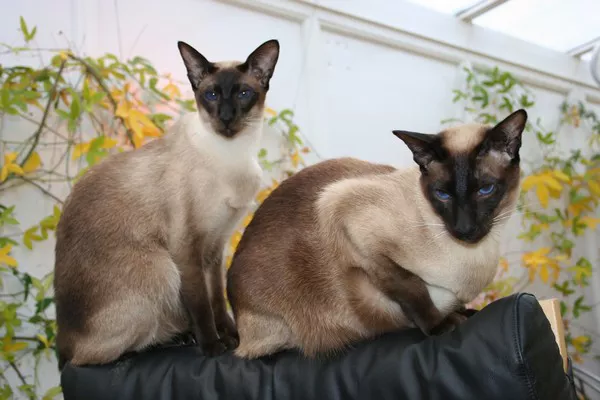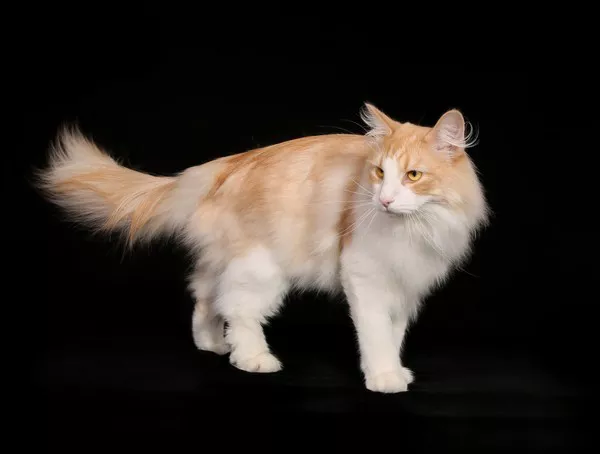Cornish Rex cats, with their distinctive appearance and playful personalities, are a source of joy for cat enthusiasts. Training these elegant felines requires a nuanced approach that takes into account their intelligence, energy levels, and individual quirks. In this comprehensive guide, we delve into the art of training Cornish Rex cats, offering insights and practical tips to create a harmonious and enriching training experience for both cat and owner.
Understanding the Cornish Rex: A Unique Feline Persona
Before embarking on the training journey, it’s essential to grasp the distinctive traits that define the Cornish Rex breed. Known for their sleek, curly coats, large ears, and slender bodies, Cornish Rex cats possess a captivating elegance. Beyond their physical attributes, Cornish Rex cats are renowned for their intelligence, curiosity, and affectionate nature.
Intelligence:
Cornish Rex cats are highly intelligent and quick learners. Their cognitive abilities make them receptive to training and interactive activities that engage their minds.
Curiosity:
These felines are naturally curious and enjoy exploring their surroundings. Harnessing this curiosity in training sessions can be a powerful motivator for Cornish Rex cats.
Affectionate Nature:
Cornish Rex cats are known for their affectionate and social personalities. They often form strong bonds with their owners, seeking companionship and interaction.
Tailoring Training Techniques for Cornish Rex Cats
Training a Cornish Rex cat requires a tailored approach that aligns with their unique characteristics. Here are key techniques to consider when embarking on the training journey:
1. Positive Reinforcement: The Power of Rewards
Cornish Rex cats respond exceptionally well to positive reinforcement. Reward-based training involves offering treats, praise, or playtime as a reward for desired behaviors. This approach not only motivates them but also strengthens the bond between cat and owner.
Tip: Use small, tasty treats that your Cornish Rex finds irresistible. Consistency in rewarding desired behaviors reinforces the training message.
2. Interactive Play: Channeling Energy
Cornish Rex cats are known for their high energy levels. Incorporating interactive play sessions into their daily routine serves multiple purposes—it expends their energy, stimulates their minds, and fosters a positive environment for training.
Tip: Invest in toys that allow your Cornish Rex to engage in active play. Feather wands, puzzle feeders, and laser pointers can be excellent tools for interactive play.
3. Clicker Training: Precision and Timing
Clicker training is a valuable technique that relies on a small handheld clicker to mark desired behaviors. The distinctive sound of the clicker serves as a clear signal for your cat, indicating that they have performed the correct action. This precision in timing enhances the effectiveness of the training process.
Tip: Pair the clicker with treats to create a strong association. Click immediately after the desired behavior and follow up with a reward.
4. Patience and Gentle Guidance: Building Trust
Cornish Rex cats thrive on positive interactions and gentle guidance. Patience is key when introducing new commands or behaviors. Avoid using harsh methods or punishment, as this can lead to stress and resistance.
Tip: Break training sessions into short, focused intervals to keep your Cornish Rex engaged. Be observant of their body language, and if they show signs of stress, pause the session.
5. Harnessing the Power of Toys: Training Through Play
Many Cornish Rex cats are drawn to toys, making them effective tools for training. Utilize toys that can be manipulated to encourage specific behaviors or actions.
Tip: Use toys to guide your Cornish Rex through agility exercises or teach them to follow commands. The combination of play and training reinforces a positive association.
See Also: What Do Cornish Rex Like to Play With?
Common Training Goals for Cornish Rex Cats
Tailoring your training goals to suit the natural inclinations of Cornish Rex cats ensures a positive and enjoyable training experience. Here are common training goals to consider:
1. Harness Training: Exploring the Outdoors
Due to their curiosity, many Cornish Rex cats can adapt well to harness training. Introduce a harness gradually, allowing your cat to get accustomed to the sensation before venturing outdoors. This opens up opportunities for safe exploration in the garden or on supervised walks.
Tip: Use treats and praise to create a positive association with the harness. Begin training indoors before progressing to outdoor environments.
2. Agility Training: Stimulating the Mind and Body
Engage your Cornish Rex in agility exercises to stimulate both their physical and mental faculties. Set up a mini agility course using tunnels, jumps, and platforms. This not only provides a physical outlet but also taps into their intelligence.
Tip: Start with simple agility elements and gradually increase complexity. Use treats to encourage your cat to navigate the course.
3. Basic Commands: Cultivating Obedience
Cornish Rex cats can learn basic commands such as sit, stay, and come. Keep training sessions short and focused, incorporating positive reinforcement to reinforce obedience.
Tip: Use treats as rewards for following commands. Consistency is key, so use the same commands and reward system in each session.
4. Interactive Puzzle Toys: Mental Stimulation
Leverage your Cornish Rex’s intelligence by introducing interactive puzzle toys. These toys often dispense treats when manipulated correctly, providing mental stimulation and encouraging problem-solving skills.
Tip: Supervise your cat initially to ensure they understand the puzzle. Gradually increase difficulty as your Cornish Rex becomes more adept.
5. Socialization: Encouraging Positive Interactions
Cornish Rex cats thrive on social interactions. Encourage positive socialization with people and other pets to foster a well-adjusted and confident cat.
Tip: Invite friends or family members to interact with your Cornish Rex. Use treats and praise to reward calm and friendly behavior.
Common Challenges in Training Cornish Rex Cats
While Cornish Rex cats are generally cooperative learners, certain challenges may arise during training. Being aware of these challenges can help you navigate them effectively:
Independent Nature:
Cornish Rex cats, like many cats, have an independent streak. They may choose when and how they want to engage in training. Respect their autonomy and be patient.
Short Attention Span:
These cats are known for their curiosity but may have a relatively short attention span. Keep training sessions brief and engaging to maintain their interest.
Sensitivity to Stress:
Cornish Rex cats may be sensitive to stress, affecting their willingness to participate in training. Create a calm and comfortable environment, and be attuned to their cues.
Variable Energy Levels:
Energy levels in Cornish Rex cats can vary. Adjust the intensity and duration of training sessions based on their energy levels to ensure a positive experience.
In Conclusion
Training your Cornish Rex cat is a journey of elegance and mutual understanding. With their intelligence, energy, and affectionate nature, Cornish Rex cats are well-suited to positive reinforcement techniques and interactive play.
As you embark on this training adventure, remember to celebrate small victories and cherish the unique qualities that make your Cornish Rex cat a delightful companion. Whether teaching agility, basic commands, or simply enjoying interactive play, the training process becomes a shared experience that strengthens the bond between you and your elegant feline friend.

























